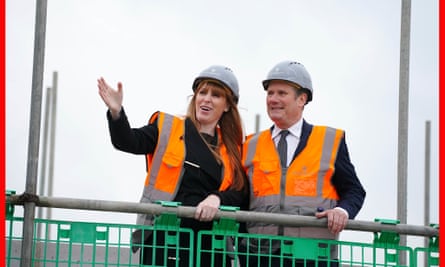Criticism has been directed at Rishi Sunak for perpetuating inequality and hindering the ability to own a home. Recent data indicates an increasing number of young buyers are relying on parental financial assistance to purchase homes.
The upcoming election is likely to focus heavily on the issue of housing affordability, as the prime minister has acknowledged that the Conservative party needs to take further action to combat the decline in home ownership among younger generations. Unfortunately, the party has not been able to fulfill its promise to construct 300,000 homes annually as stated in their manifesto.
Though Sunak is receiving criticism regarding data indicating a significant increase in the number of young individuals relying on assistance from friends and family to purchase a home. In the fiscal year of 2022-23, 37% of first-time home buyers received monetary gifts to support their down payments, compared to 27% in the previous year. This reflects a 40% jump and an additional 89,000 households.
New data released recently showed a decrease in planning approvals for new housing developments in 2023. There was a 20% decline in permits for new homes in England, and the number of approved sites was the lowest recorded since 2006, when the Home Builders Federation started collecting data.
The decrease in home ownership among younger individuals has caused concern for potential inequality, as wealthier young people are more likely to receive financial assistance from their families for purchasing their first home. There is also a call for measures to be taken to improve the state, safety, and cost of privately rented homes, as more and more millennials are being forced into this type of housing.
The discoveries were made following the decision of Sunak and his chancellor, Jeremy Hunt, to scrap the proposal of implementing a 99% mortgage plan in the budget. This initiative would have significantly decreased the initial deposit required for those who opt for it. Various banks and housing experts had cautioned that while it may have initially increased home ownership, it could ultimately prevent even more people from entering the housing market.
The topic continues to be a major concern within the Tory party. The Secretary of Levelling Up, Michael Gove, has been advocating for stricter measures, and has cautioned that younger generations will lose trust in democracy if they are unable to access affordable housing. In contrast to 50% of baby boomers who owned a home by age 30, this number has dropped to less than a third for millennials.
Angela Rayner, Labour’s deputy leader who highlighted the increasing role of the “bank and mum and dad” in the English Housing Survey, said Sunak had put party management and the short term over the needs of the country. Compulsory local house-building targets were scrapped after a Tory revolt.
“Parents should not be forced to shell out their life’s savings or sell the family silver to get their grown-up children on the housing ladder,” she said. “Young people lucky enough to have parents able to support them are raiding the bank of mum and dad, while those without that opportunity have seen the dream of home ownership shattered. The Tories have crashed the economy and caused a housing crisis which is locking people who work hard and play by the rules out of owning their own home.”

Display the image in full screen mode.
She announced that if elected, the Labour party plans to revise planning regulations in order to fulfill their promise of constructing 1.5 million new homes during their term in the next parliament. This includes creating new towns for the future generation. Additionally, she mentioned that first-time home buyers would have priority access to these new homes in their local area.
Experts in housing cautioned that the English Housing Survey information may fluctuate, but the fact remains that affordability remains a significant obstacle. According to Neal Hudson, a housing analyst at BuiltPlace, a considerable number of individuals looking to purchase their own home, particularly in London and the south-east, have relied on assistance from loved ones for over ten years.
“We must develop a sustainable plan for lowering prices in relation to income, without jeopardizing our future for short-term political tactics. This requires examining the issue of affordable housing through the lens of urban planning and government support for social rental units. Additionally, there may be potential consideration of property taxes, such as council tax and stamp duty.”
An economist, Molly Broome, from the think tank Resolution Foundation, expressed concern that the rise in gift-giving could be due to wealthier parents accruing savings during the Covid pandemic. She believes that this could worsen inequality as those who are already on higher incomes and set to become homeowners may receive larger financial gifts, while those with lower incomes and family wealth may not receive the same opportunities.
A representative from the Department for Levelling Up, Housing, and Communities stated: “Our goal is to establish an equitable housing system that benefits everyone. This includes increasing the number of first-time buyers across all regions and increasing the availability of new, truly affordable housing.”
“Since spring 2010, government-supported programs have assisted over 876,000 households in becoming homeowners. Our housing plan will continue to progress by constructing the homes desired and required by local communities, with an allocated £10 billion to increase supply and £11.5 billion for affordable housing.”
Source: theguardian.com


